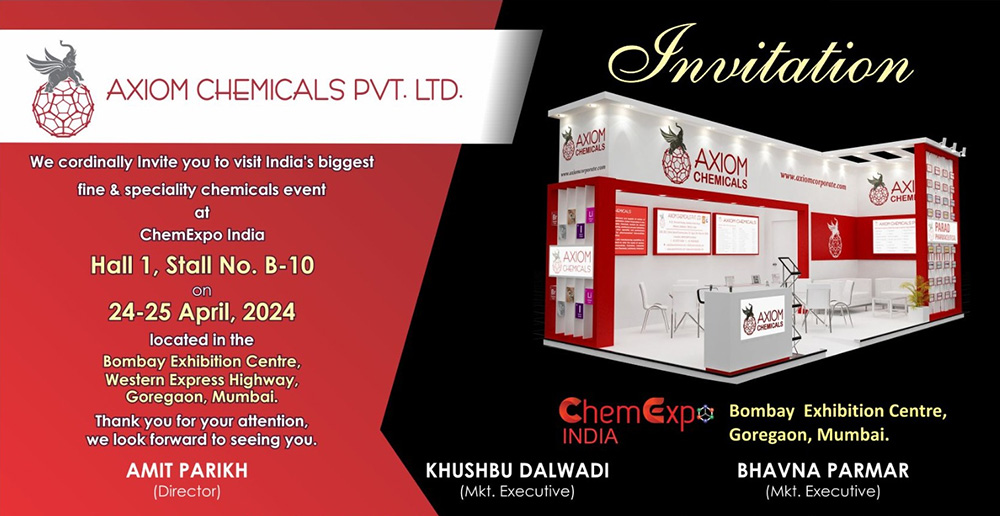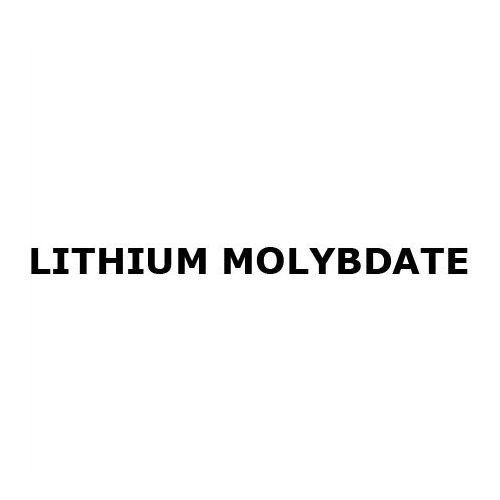Product Description
As a quality oriented firm, we are engaged in manufacturing, exporting and supplying extremely pure Lithium Molybdate (Li2MoO4), CAS No. 13568-40-6. The provided chemical compound is extensively used as a corrosion inhibitor in air conditioning systems. The offered chemical is formulated by our skilled processionals using superlative quality basic compounds and advanced processing techniques. Additionally, we are offering this product to our clients in different packaging options at industry leading prices.
Lithium Molybdate Properties:
1. Chemical formula: Li2MoO4
2. Molar mass: 173.82 g/mol
3. Appearance: white odorless powder; hygroscopic or transparent crystal
4. Density: 3.07 g/cm3 (pure crystal), 2.66 g/cm3 (hydrated crystal)
5. Melting point: 705 degree centigrade
6. Solubility in water: very soluble
7. CAS Number: 13568-40-6
Lithium Molybdate Applications:
1. Corrosion Inhibitors: Lithium molybdate is often employed as a corrosion inhibitor, particularly in water treatment systems. It helps prevent corrosion in both aqueous and steam environments, making it valuable for protecting metal surfaces in boilers, pipelines, and cooling systems.
2. Catalysts: It serves as a catalyst in several chemical reactions. For instance, lithium molybdate can be used in the production of acrylonitrile, a key precursor in the manufacturing of acrylic fibers and plastics. It also finds applications in the oxidation of propylene to acrolein.
3. Coatings and Pigments: Lithium molybdate is utilized in the production of specialized coatings and pigments. These coatings can offer corrosion resistance and protective qualities in various applications, including automotive and aerospace industries.
4. Electrochemical Applications: In some cases, lithium molybdate is used in electrochemical applications, such as batteries and fuel cells. It can enhance the performance and stability of these devices.
5. Glass Manufacturing: Lithium molybdate can be added to glass formulations to modify the properties of glass, such as its melting point and thermal expansion coefficient. This makes it useful in the production of specialty glasses, including those used in electronics and optics.
6. Ceramics: It is also employed in ceramic manufacturing processes, where it can serve as a flux to lower the melting point of ceramic materials, aiding in the formation of glazes and improving ceramic properties.
7. Nuclear Industry: Lithium molybdate is used in the nuclear industry for various applications, including as a neutron absorber and as a component in radiation shielding materials.
8. Photovoltaics: In the field of solar energy, lithium molybdate can be incorporated into thin-film photovoltaic devices to enhance their efficiency and stability.
Lithium Molybdate FAQ:
Q. How does lithium molybdate function as a corrosion inhibitor?
Ans: Lithium molybdate forms a protective layer on metal surfaces, which prevents corrosion by inhibiting the electrochemical reactions that lead to metal degradation.
Q. In what chemical reactions is lithium molybdate used as a catalyst?
Ans: Lithium molybdate is used as a catalyst in reactions such as the production of acrylonitrile and acrolein, among others.
Q. What are the benefits of incorporating lithium molybdate in glass manufacturing?
Ans: Lithium molybdate can modify the properties of glass, including its melting point and thermal expansion coefficient, making it useful in specialty glass production.
Q. Is lithium molybdate safe to use?
Ans: Lithium molybdate is generally considered safe when handled and used according to recommended practices. However, like any chemical compound, proper precautions should be taken to ensure safe handling and disposal.
Q. What are the storage and handling considerations for lithium molybdate?
Ans: Lithium molybdate should be stored in a cool, dry place away from incompatible materials. Proper ventilation and personal protective equipment should be used when handling the compound.
Q. Are there any regulatory restrictions or environmental concerns associated with lithium molybdate?
Ans: Regulations regarding the use and disposal of lithium molybdate may vary depending on location. Environmental considerations should be taken into account, and proper disposal methods should be followed according to local regulations.



